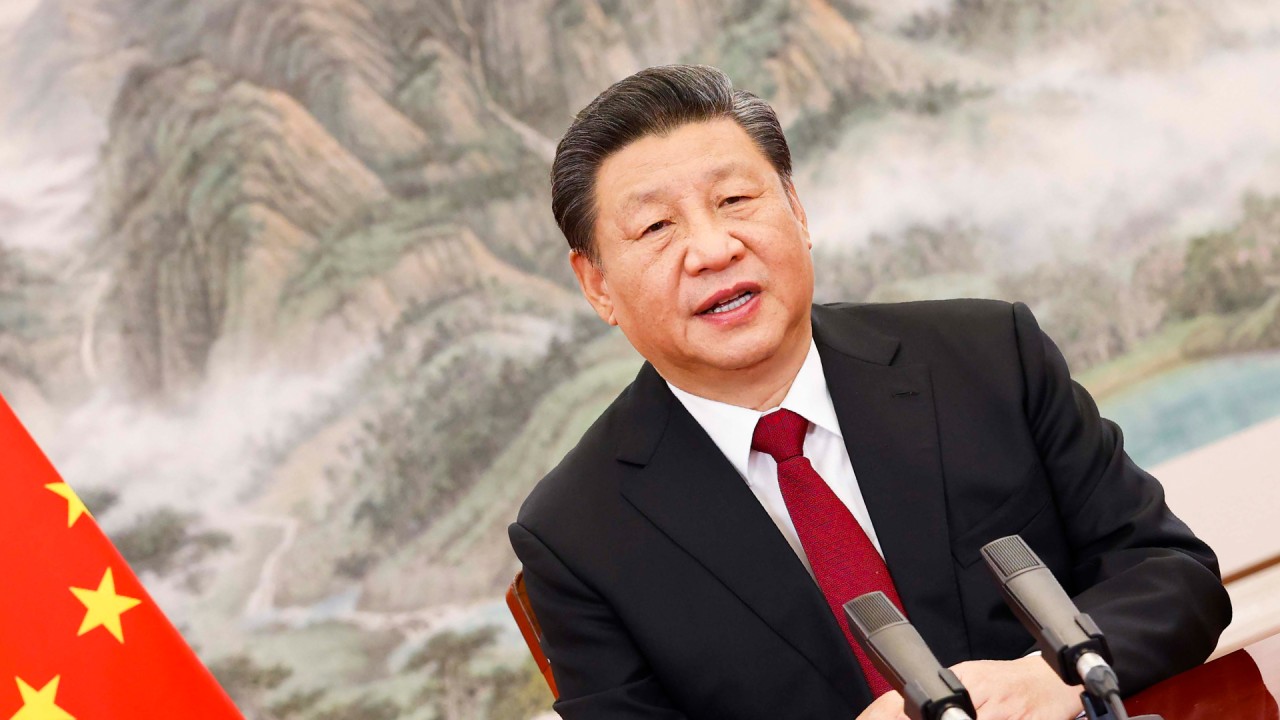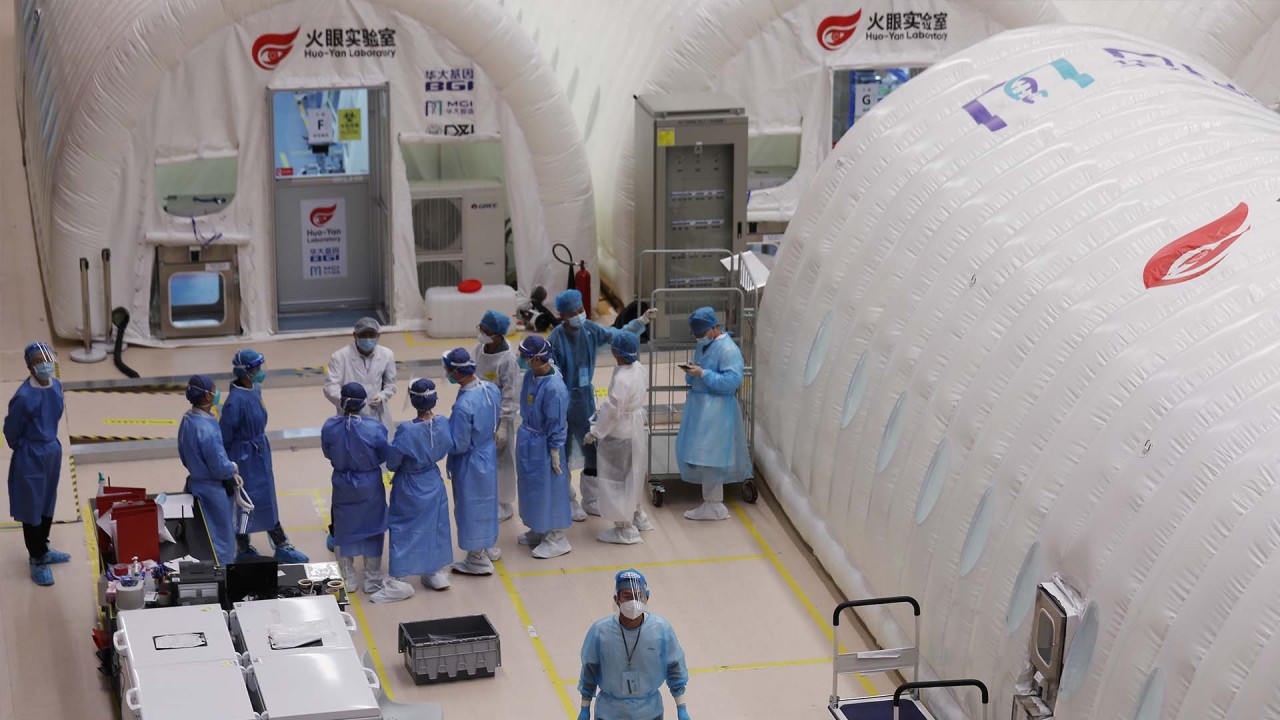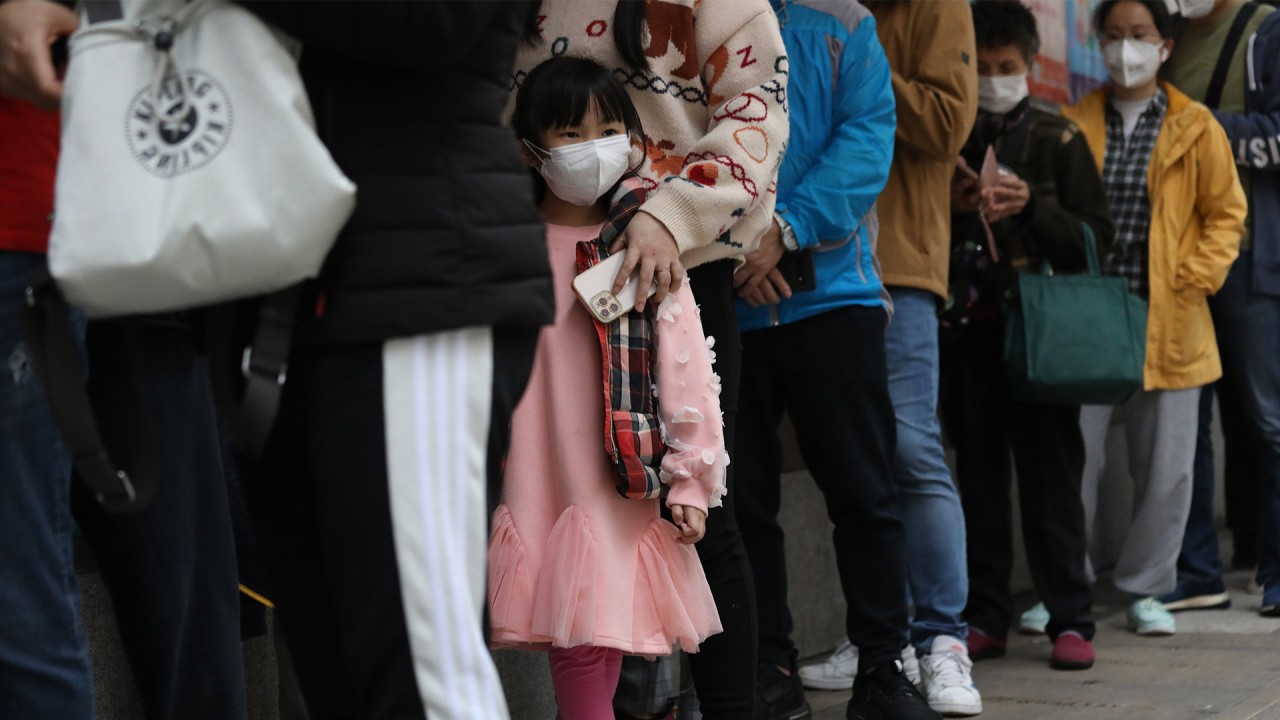
A scolding or call to arms? Unpacking Chinese President Xi Jinping’s message to Carrie Lam on Hong Kong’s floundering coronavirus struggle
- Observers and insiders say move by Chinese leader urging city authorities to bear ‘main responsibility’ is unprecedented and serves as rude awakening
- Others however interpret it as a galvanising call and show of support for a city brought to its knees by a raging Covid-19 wave
If it could not see the unprecedented nature of such a public “scolding”, then its days were numbered, they warned, noting how Xi had never been as blunt before in his messages to the local government.
Pundits and pro-establishment politicians in Hong Kong said it was a warning to city leader Carrie Lam Cheng Yuet-ngor to deliver or be held accountable if it failed to tame the pandemic.
But others sought to portray Xi’s message as a galvanising call to rally together, downplaying suggestions the central government was unhappy with Hong Kong.
They pointed to how Beijing had actually deepened its commitment to help by upgrading a coordination task force set up just last weekend. Now, the task force would be led only by the highest-ranking officials to allow for swifter and more effective decision-making, a source said.
The new direction marked a shift from the coordination mechanism announced during a meeting in Shenzhen last Saturday, attended by Hong Kong Chief Secretary John Lee Ka-chiu, deputy heads of the State Council’s Hong Kong and Macau Affairs Office, the National Health Commission and the Guangdong provincial government.
In Xi’s message, reported by two pro-Beijing newspapers in the city, Ta Kung Pao and Wen Wei Po, he urged the local government to make it an overriding priority to stabilise and control the pandemic as soon as possible.
What was most important was to ensure the lives and safety of residents and the overall social stability of the city, he was reported as saying.
A mainland expert familiar with Hong Kong affairs said the central government was empowered to supervise city authorities.
In a white paper issued in 2014, the State Council stressed that the central government enjoyed “comprehensive jurisdiction” over Hong Kong.
“If the Hong Kong government fails to deliver, the central government has no choice but shoulder its responsibility to urge the local administration to step up its efforts,” said the mainland expert, who spoke on condition of anonymity.
“Xi’s instruction is a clear signal that the Hong Kong government must raise its game and change its mindset. If local governments on the mainland perform poorly in tackling the pandemic, they would face pressure from the central government.”
He said the situation had reached the point where Hong Kong’s social stability was under threat.
“Many crucial events, like preparations for the celebration of the 25th anniversary of Hong Kong’s handover, are also being affected,” he said.
“So much is at stake, including Hong Kong’s economy, foreign investment and China’s international image. Hong Kong’s fifth wave of pandemic reflects badly not only on itself, but also the country which is hosting the Winter Olympics.”
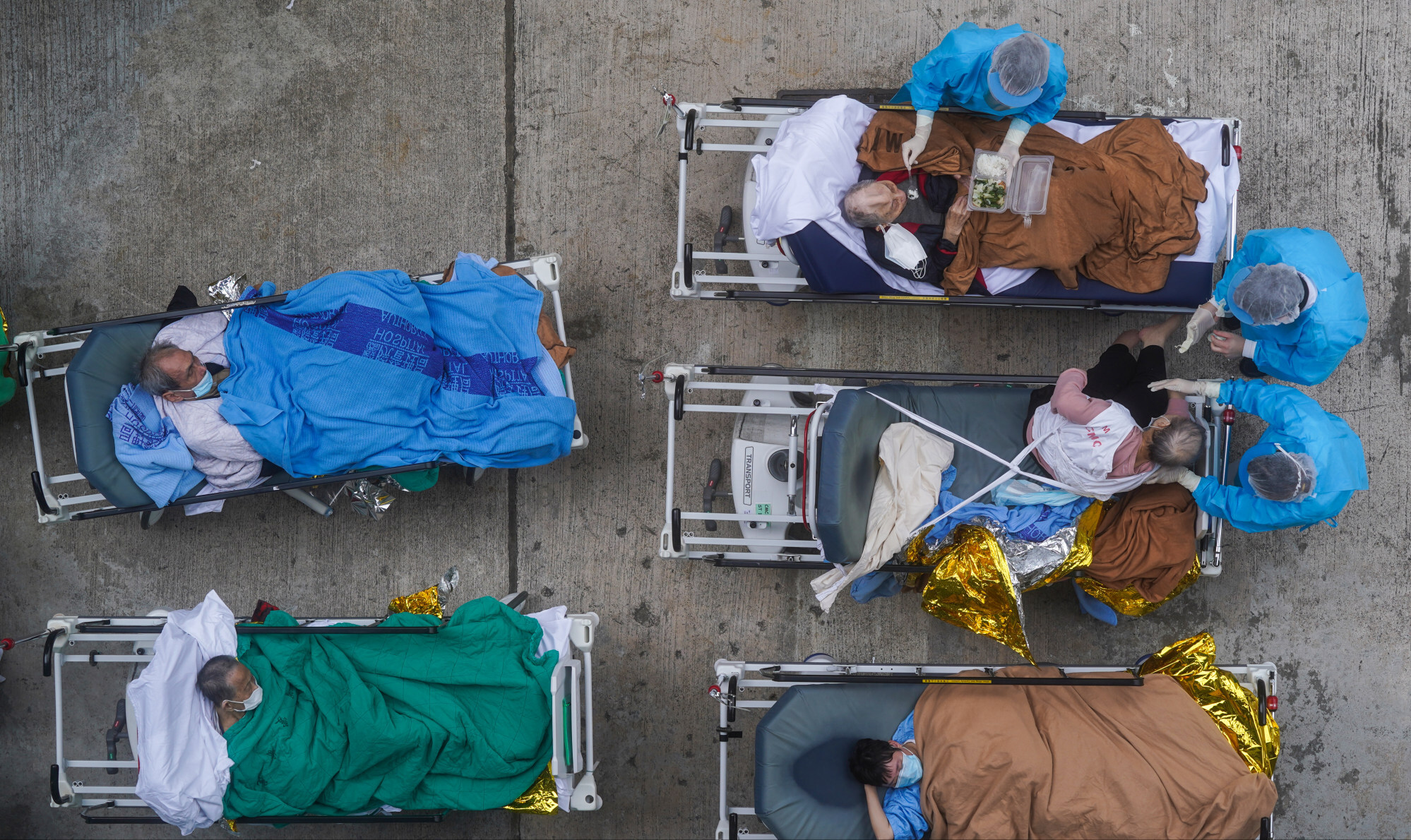
Tian Feilong, an associate law professor at Beihang University in Beijing, noted “external forces” – blamed for the social unrest in 2019 – recently pivoted their attention back to Hong Kong in the wake of its worsening health crisis.
The city confirmed 4,285 new cases on Wednesday. The escalating situation stood in contrast with that of mainland China, where cases were only in double digits over the past few days.
The mainland official, who was involved in the discussion of the establishment of the high-level coordinating mechanism on cross-border efforts to boost Hong Kong’s capacity in battling the pandemic, said the mainland members reported directly to Vice-Premier Han Zheng, the state leader in charge of Hong Kong affairs.
The cross-border coordination meeting on Saturday was attended by deputy heads of relevant mainland departments, including Huang Liuquan, deputy director of the Hong Kong and Macau Affairs Office (HKMAO), Sun Yang and Li Dachuan, both deputy directors of the National Health Commission and Zhang Xin, vice-governor of Guangdong province.
With the upgrade of officials taking part in cross-border coordination, HKMAO director Xia Baolong and National Health Commission director Ma Xiaowei would be the two point men to coordinate the central government’s assistance for Hong Kong, the source said.
With the mechanism ready, Hong Kong and mainland officials are now divided into five special task forces, focused on boosting local testing capability, pathological examinations, constructing quarantine facilities, and maintaining a steady stream of medical goods and fresh food supplies.
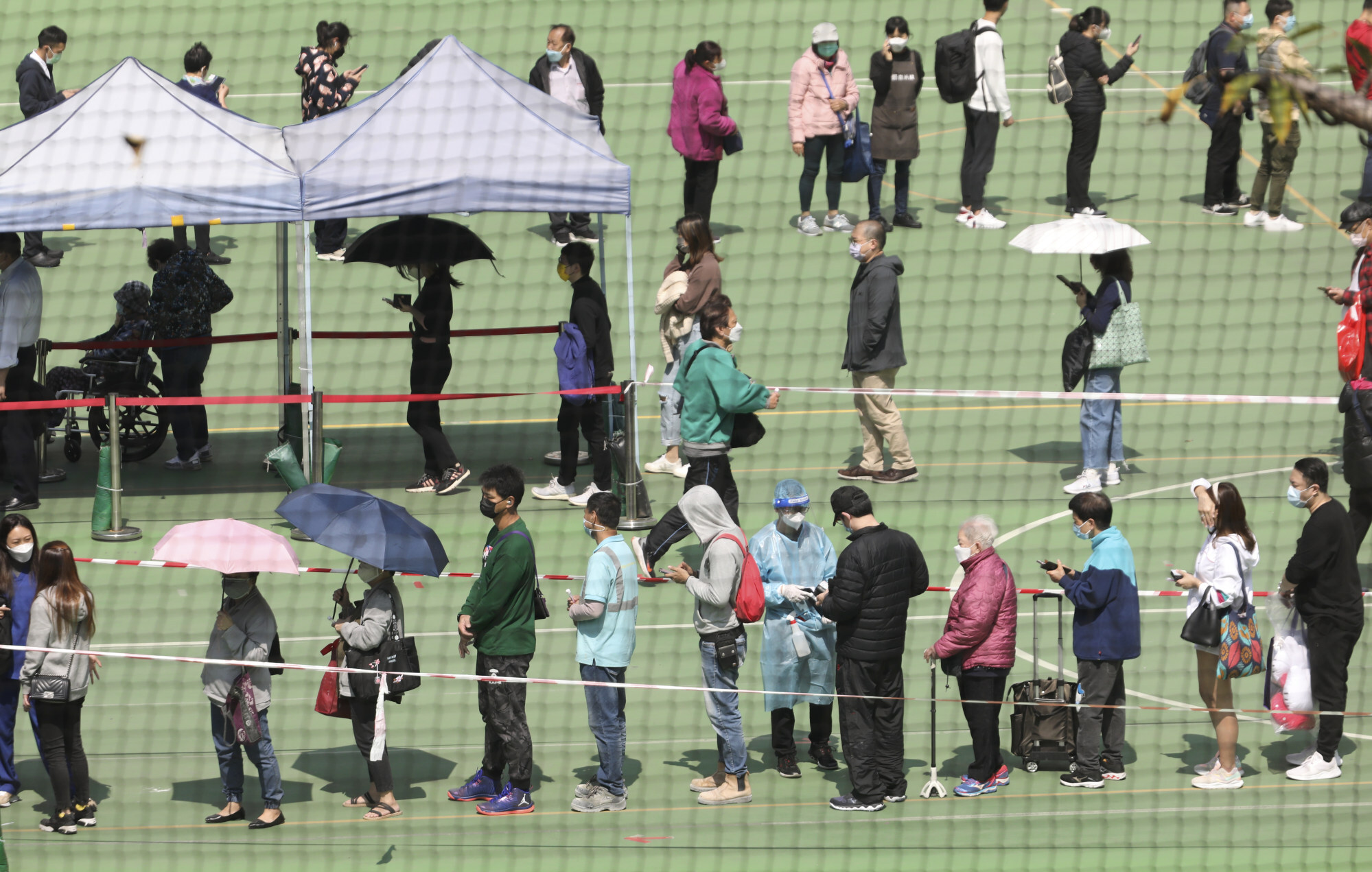
Xie Maosong, a senior researcher with Tsinghua University’s National Strategy Institute, said the coordinating mechanism showed the central government was “very mindful” of working within the boundaries of “one country, two systems”.
“Now it has become clear that Hong Kong, with its limited resources, cannot cope with the mounting challenge to tackle the worsening pandemic,” he said. “The central government is certainly willing to help but it is very mindful that the Hong Kong government is ultimately responsible … It is not going to take the driver’s seat.”
“Vice-Premier Sun Chunlan, the mainland’s top official in charge of pandemic control, cannot just go to Hong Kong and give orders.”
A Hong Kong source familiar with the situation said the city’s government knew it was still in the driver’s seat.
“The meeting in Shenzhen on Saturday is part of the game plan and a precursor to the cross-border coordination,” the source said.
“The central government is well aware of the fact that Hong Kong is different from the mainland in its approach towards pandemic control.”
Ronny Tong Ka-wah, a member of the Executive Council, Carrie Lam’s de facto cabinet, said he did not see Xi’s instruction as criticism of the Hong Kong government’s handling of the pandemic.
“I see it as the president giving support to Hong Kong while urging the Hong Kong government to step up efforts in containing the outbreak,” he said.
One immediate impact of the president’s message was to prompt action from many quarters, starting with a statement from Lam expressing “heartfelt gratitude” to Xi and to concur the main responsibility for stamping out the infections lay with the local government.
Other leaders such as former chief executive Leung Chun-ying and Financial Secretary Paul Chan Mo-po also noted Xi’s message.
Leung wrote on Facebook that “people and lives are of top priority” and called on residents to work with the government, while Chan in his official blog said Xi’s concern gave the government “greater determination and confidence”.
Other organisations, including some of Hong Kong’s biggest property landlords, said they would offer retail tenants rental relief and concessions, all seen as confidence-building moves to prevent struggling businesses from folding.
The liaison office said Xi’s message had “injected strong, positive energy” into the city. “Sectors in society are greatly encouraged and expressed one after another that President Xi’s important instructions have made Hong Kong people feel extraordinarily warm,” it said.
But despite the bold, united front presented, several pro-establishment politicians warned of the possible political fallout from an outbreak that appeared to have pushed the public hospital system to the brink of collapse.
A pro-establishment politician said the Hong Kong government had failed to “think out of the box” under critical circumstances, and called for some officials to take responsibility for not anticipating early enough to stamp out the massive outbreak.
“For days, the government failed to provide a clear timetable for the public on how they will cope with those outstanding patients and insufficient isolation facilities, not to mention how it failed to achieve ‘dynamic zero’ for long,” the pro-establishment figure said.
“There are calls in the pro-establishment camp asking health minister Sophia Chan Siu-chee to step down already. It is obvious that the government is overly bureaucratic, and failed to act immediately.”
Executive councillor Wong Kwok-kin said Xi’s emphasis on the Hong Kong government’s “main responsibility” in battling the outbreak reflected the central authorities’ dissatisfaction with city officials’ lack of planning to stay ahead of the wave.
He added that Beijing, which had long adopted stringent isolation policies, would find the number of 12,000 Covid-19 patients waiting for hospital treatment in Hong Kong “very alarming”.
Fellow executive councillor Ip Kwok-him agreed that the Hong Kong administration’s performance in pandemic control would also affect the central government’s confidence in who was capable of becoming the next chief executive.
“Beijing would like to see someone capable of ruling the city in difficult times,” he said.
Analysts said the management of the worsening Covid-19 situation could have a bearing on the chief executive race, and if it spiralled out of control, the crisis would reflect badly on the incumbent leader.
Lam has remained coy about whether she will seek a second term, stressing her top priority is to manage the “critical” pandemic.
She said on Tuesday the two-week nomination period for the March 27 race would begin as planned on February 20, although she could not preclude any possibilities “at this moment”.
With the stunning surge in daily caseloads, some in the city’s political circle said they did not rule out a postponement of the leadership poll.
The Post learned that the electoral office was preparing for unprecedented scenarios.
According to the Chief Executive Election Ordinance, if no candidates are validly nominated, the election could be postponed for 42 days.
In July 2020, the government invoked the Emergency Regulations Ordinance to postpone the September Legislative Council election for a year, citing public health risks.
Ronny Tong said unless the country’s top legislative body, the National People’s Congress Standing Committee, laid down a relevant decision, the term of the current administration could not be extended according to the Basic Law, Hong Kong’s mini-constitution.
Film producer and kung fu master Checkley Sin Kwok-lam, the only hopeful to throw his hat into the ring, said a postponement would only fuel uncertainties in society. This would be against Xi’s call to ensure stability, he argued.
Additional reporting by Natalie Wong and Lilian Cheng



